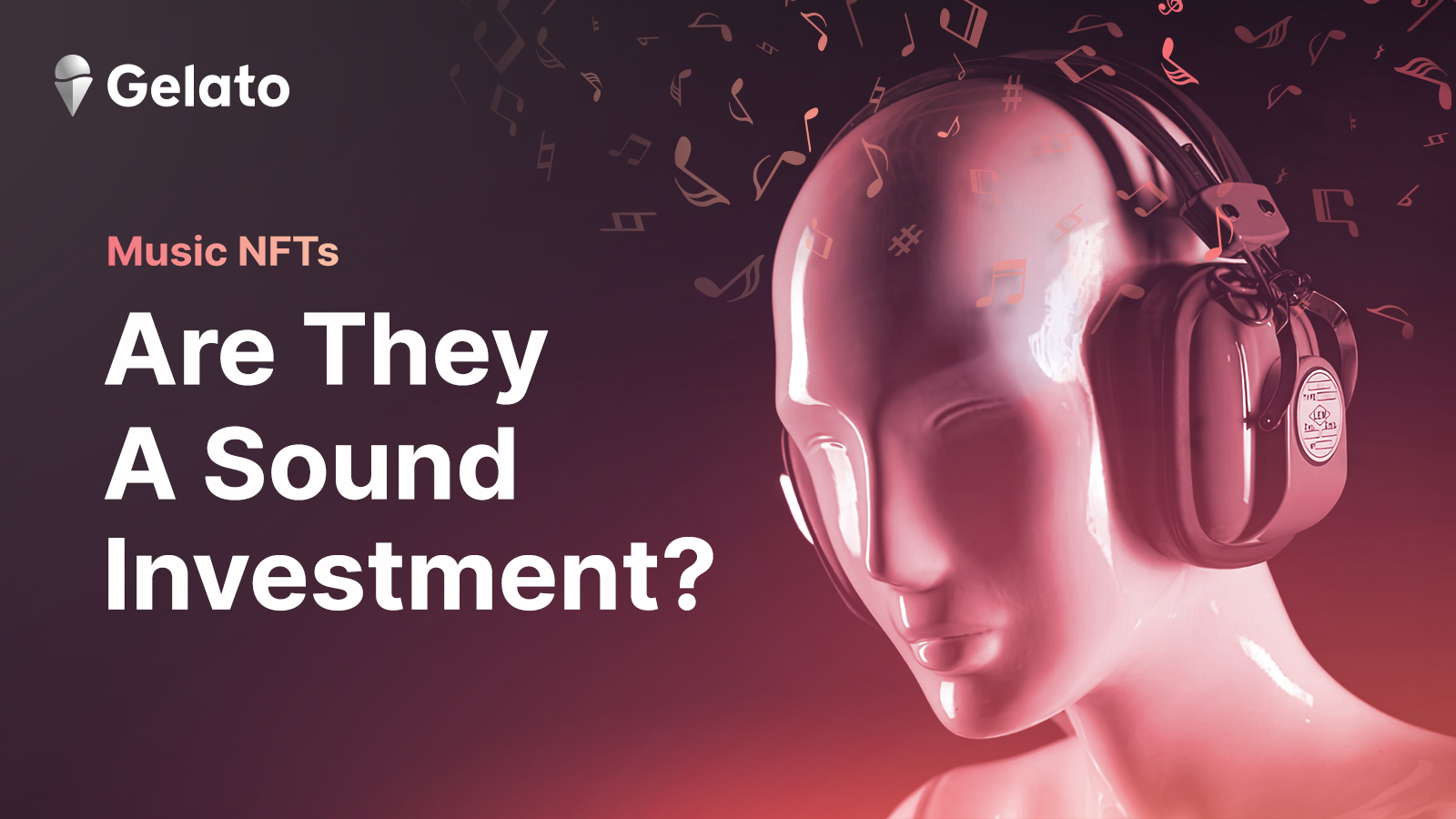751 days ago
Music NFTs: are they a sound investment?
 From using NFTs as profile pictures to leveraging them for real-world use cases such as gaming, fractionalized nfts, and nft tickets, the world of non-fungible tokens (NFTs) has come a long way. These unique digital assets are now being utilised for more practical and impactful purposes than ever before.One such groundbreaking application is Music NFTs.
From using NFTs as profile pictures to leveraging them for real-world use cases such as gaming, fractionalized nfts, and nft tickets, the world of non-fungible tokens (NFTs) has come a long way. These unique digital assets are now being utilised for more practical and impactful purposes than ever before.One such groundbreaking application is Music NFTs.
In this article, we explore the world of Music NFTs, the challenges faced by musicians in the traditional music industry, and how these Music NFTs are empowering artists.
What are Music NFTs?
Music NFTs are the digital representation of a music artist's work, such as songs, music videos, or entire albums, stored on a blockchain network. As unique and non-fungible tokens, they grant ownership and open up a world of possibilities for both musicians and fans.
The journey of music has been a fascinating one, transitioning from vinyl records and cassette tapes to CDs, MP3s, and now streaming services like Spotify and Apple Music. While these platforms have made it easier for fans to access their favourite tunes, they have also posed significant challenges for musicians.
Challenges Faced by Musicians
Streaming services have become the go-to method for fans to engage with their favourite artists. In Q2 of 2022, Spotify dominated the market with a 30.5% share of total music streaming subscribers.
Spotify pays artists between $0.003 and $0.0084 per stream, averaging at just $0.004. The actual payout is influenced by factors such as the listener's location and subscription type (Free or Premium). Even though Spotify distributes nearly 70% of its revenue to rights holders like labels, publishers, distributors, and independent artists, this system can be highly limiting. As a result, musicians often struggle to make a sustainable income from their streams, with a staggering 250,000 streams required to earn a $1,000.
While other music streaming services might offer better payouts, the problem persists. To increase earnings, artists are forced to diversify their presence across multiple platforms and focus on getting featured in popular playlists.
How Music NFTs Empower Musicians
Greater Control and Monetization
Music NFTs offer artists the opportunity to sell their music directly to fans, retaining a larger share of the profits. This direct-to-fan approach grants creators more control over their work, allowing them to set their own prices and determine the number of copies available.
Unlike streaming services like Spotify, which pay artists an average of $0.004 per stream, NFTs allow musicians to directly sell their music and retain a larger share of the profits. For instance, Kings of Leon released their album "When You See Yourself" as an NFT and earned over $2 million in sales.
Direct Artist-Fan Connection
Music NFTs foster a more intimate relationship between musicians and their fans. By eliminating intermediaries like record labels and streaming services, fans can directly support their favourite artists by purchasing NFTs. For example, fans of Grimes were able to purchase NFTs representing her artwork, directly contributing to her success. This direct connection helps build a vibrant and engaged music community, where fans feel more involved in the artists' success.
How to create Music NFTs
To learn about how to buy and sell NFTs, check out our earlier post!
-
Create your digital asset: Produce a unique piece of music, album art, or other music-related content that you'd like to tokenize as an NFT.
-
Choose a blockchain platform: Select a suitable blockchain network that supports NFTs, such as Ethereum, Binance Smart Chain, or Polygon. Set up a compatible wallet for managing your NFTs.
-
Mint your NFT: Use an NFT marketplace or platform (like OpenSea, Rarible, or Foundation) to mint your music NFT. Upload your digital asset and complete the required metadata fields, including title, description, and any royalty settings.
-
List and sell: Once your NFT is minted, list it for sale on your chosen NFT marketplace. Set your desired price and auction parameters, then share the listing with your audience to attract potential buyers.
Music NFTs & Web3 Functions
Music Royalties: Gelato’s Web3 Functions can gather data from APIs of streaming platforms like Spotify to track the number of times a song has been played. Once the predetermined conditions, such as reaching a certain number of plays or specific time intervals, are met, the Web3 Function can trigger a smart contract function to process the royalty payments automatically. On-chain music royalty payments that are based on how often songs are played on streaming platforms like Spotify
About Gelato
Gelato is a Web3 Cloud Platform empowering developers to create automated, gasless, and off-chain-aware Layer 2 chains and smart contracts. Over 400 web3 projects rely on Gelato for years to facilitate millions of transactions in DeFi, NFTs, and gaming.
-
Gelato RaaS: Deploy your own tailor-made ZK or OP L2 chains in a single click with native Account Abstraction and all Gelato middleware baked in.
-
Web3 Functions: Connect your smart contracts to off-chain data & computation by running decentralized cloud functions.
-
Automate: Automate your smart contracts by executing transactions automatically in a reliable, developer-friendly & decentralized manner.
-
Relay: Give your users access to reliable, robust, and scalable gasless transactions via a simple-to-use API.
-
Account Abstraction SDK: Gelato has partnered with Safe, to build a fully-fledged Account Abstraction SDK, combining Gelato's industry's best gasless transaction capabilities, with the industry's most secure smart contract wallet.
Subscribe to our newsletter and turn on your Twitter notifications to get the most recent updates about the Gelato ecosystem! If you are interested in being part of the Gelato team and building the future of the Internet browse the open positions and apply here.

